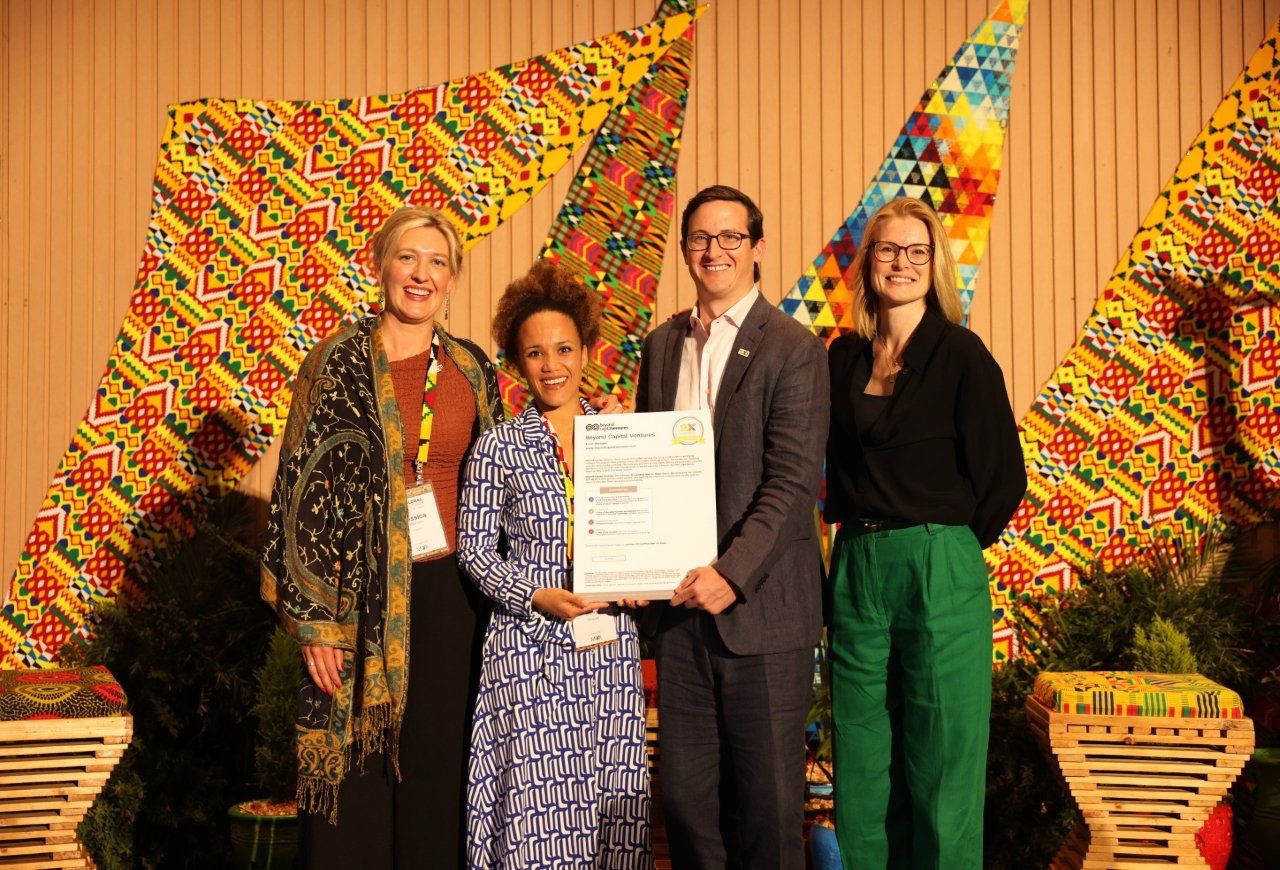The new certification programme is focused on evaluating and recognising investors, companies and financial instruments that are working towards greater gender inclusion.

2X Global, the global industry body promoting gender lens investing, has launched a new certification programme – 2X Certification, at its annual summit for members, which took place in Nairobi, Kenya.
2X Certification builds on the organisation’s 2X Criteria, which were originally developed to assess investments for qualification under the 2X Challenge, an initiative launched at the G7 Summit in 2018 as a commitment by development finance institutions to collectively mobilise private sector investments aimed at improving the lives of women in developing country markets.
2X Criteria have since become a recognised global standard for gender-lens investing in both developing and developed markets and have been widely adopted by investors, financial intermediaries and companies as well as by international organisations. They have also been incorporated into the GIIN’s IRIS+ impact measurement benchmarks and are aligned with HIPSO (Harmonised Indicators for Private Sector Operations) and the OECD’s gender equality policy marker, a qualitative statistical tool to record development activities that target gender equality as a policy objective.
Jessica Espinoza, CEO of 2X Global, told Impact Investor that the 2X Certification was the natural next step in driving the adoption of higher standards in gender equity. She explained that her organisation had decided to develop the certification after experiencing a rise in requests for an independent label from organisations using the criteria.
“The 2X Criteria were launched in support of the 2X Challenge because we needed a single common framework to explain what was meant by the term gender-lens investing, as well as to define indicators of best practice in gender equity across the business value chain but these relied on investors, companies and funds self-reporting.
“Two years ago, we started to see an increase in demand from organisations asking for an independent label or certification that would benchmark their performance against other market participants and vouch for the accuracy of their data.”
Good, advanced and best-in-class
Espinoza explained that 2X Global consulted with some 600 stakeholders globally on what the certification would look like.
“We took the 2X Criteria as a starting point. Companies who met the criteria reached the first level of ‘good’, but the methodology goes a lot broader and deeper than that. Organisations committed to improving gender equity can unlock much higher levels of certification and move from ‘good’, to ‘advanced’ to ‘best-in-class’.”
She gives the example of gender equity in senior leadership, where beyond having a high share of female representation, organisations could score higher if they had policies targeting women for promotion, improving the retention of women in senior roles or those with processes in place to aid career progression.
“Similarly in employment, you can go much deeper and look at the health and wellbeing of female employees or equal pay for example. Our certification methodology is much more comprehensive and goes further than the criteria, allowing investors, companies and funds to obtain higher levels of certification and differentiate themselves.”
Third party verification
Espinoza said the certification also offered a higher level of credibility than pure self-assessment through third-party verification.
“It starts with self-assessment, where a company or fund reports their own data based on a questionnaire on our certification platform, but the next step is for third-party verifiers to independently check the data based on evidencing documents and their own investigations into data accuracy.”
Asked about the impact of the certification on gender-lens funds in particular, Espinoza added: “Today, there are hundreds of funds that call themselves gender-lens funds and it is really difficult to do due diligence on so many and understand which ones are doing better than others. With this certification, LPs know they can trust the data, and get access to all the details they need.’
Organisations who achieve certification need to be recertified every two years and are encouraged to report on their gender equity metrics annually.
Pilot programme
At the annual summit, the five participants who took part in the pilot programme, which took place in the first half of this year, received their certification.
Four of them received best-in-class certification, including S4S Technologies, a company in South Asia working with farmers and the food industry to reduce food waste, Verod Capital, a West-African private equity investor, Beyond Capital Ventures, an emerging markets venture capital firm; and AAvance, a fintech company working to improve financial inclusion in Latin America. Portland Private Equity, a private equity firm operating in Latin America and the Caribbean, received advanced certification.
“The pilot participants said the certification programme was valuable in that they could see where they currently stand, the areas where they are falling short. Even those who achieved best-in-class status were given advice on areas they could improve further,” said Espinoza.
The pilot programme trained and used three verifiers, PwC, Sagana and Value for Women. The newly launched certification programme is open to other firms interested in taking part.






